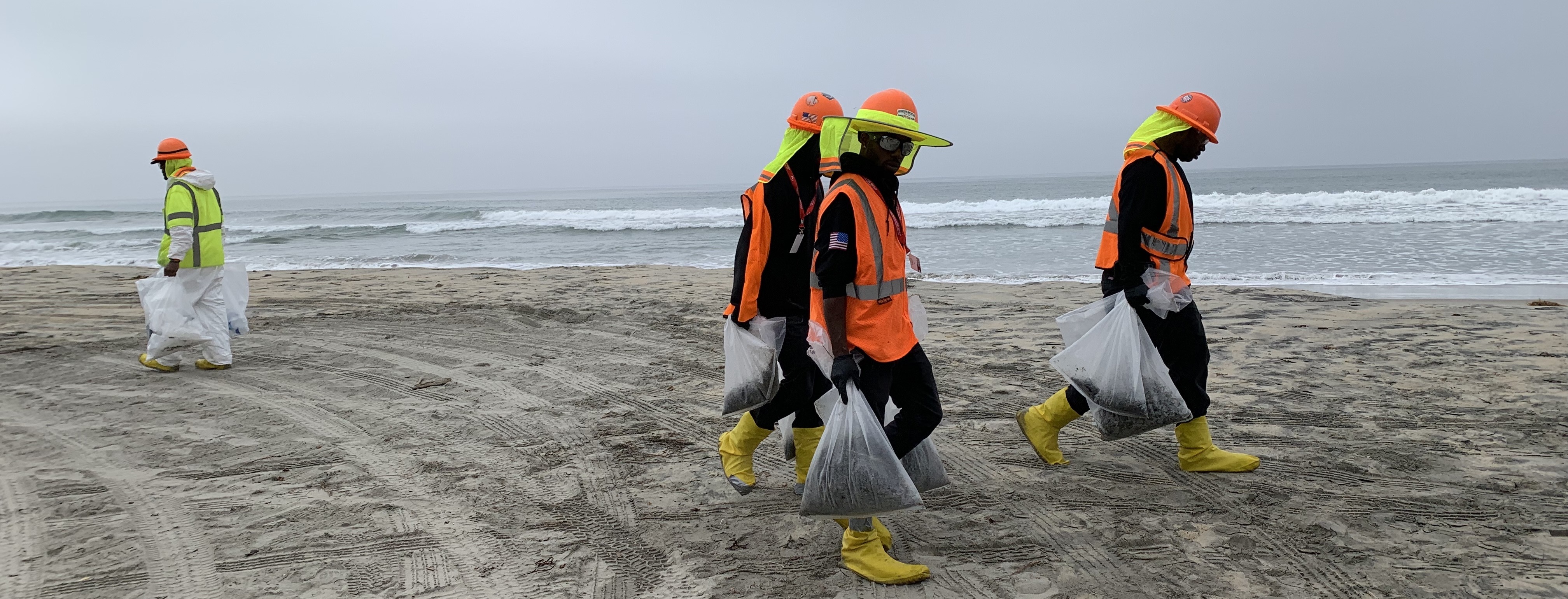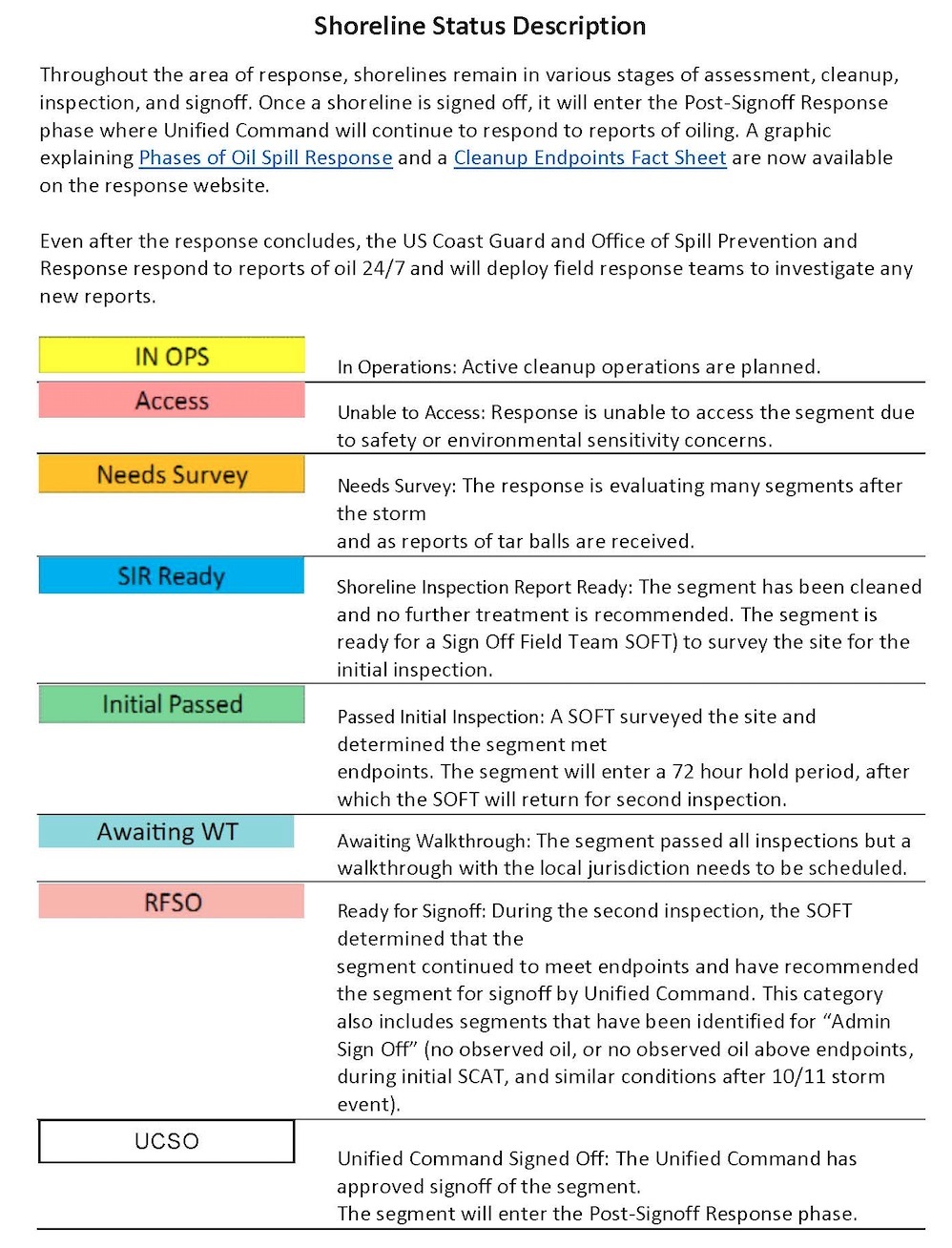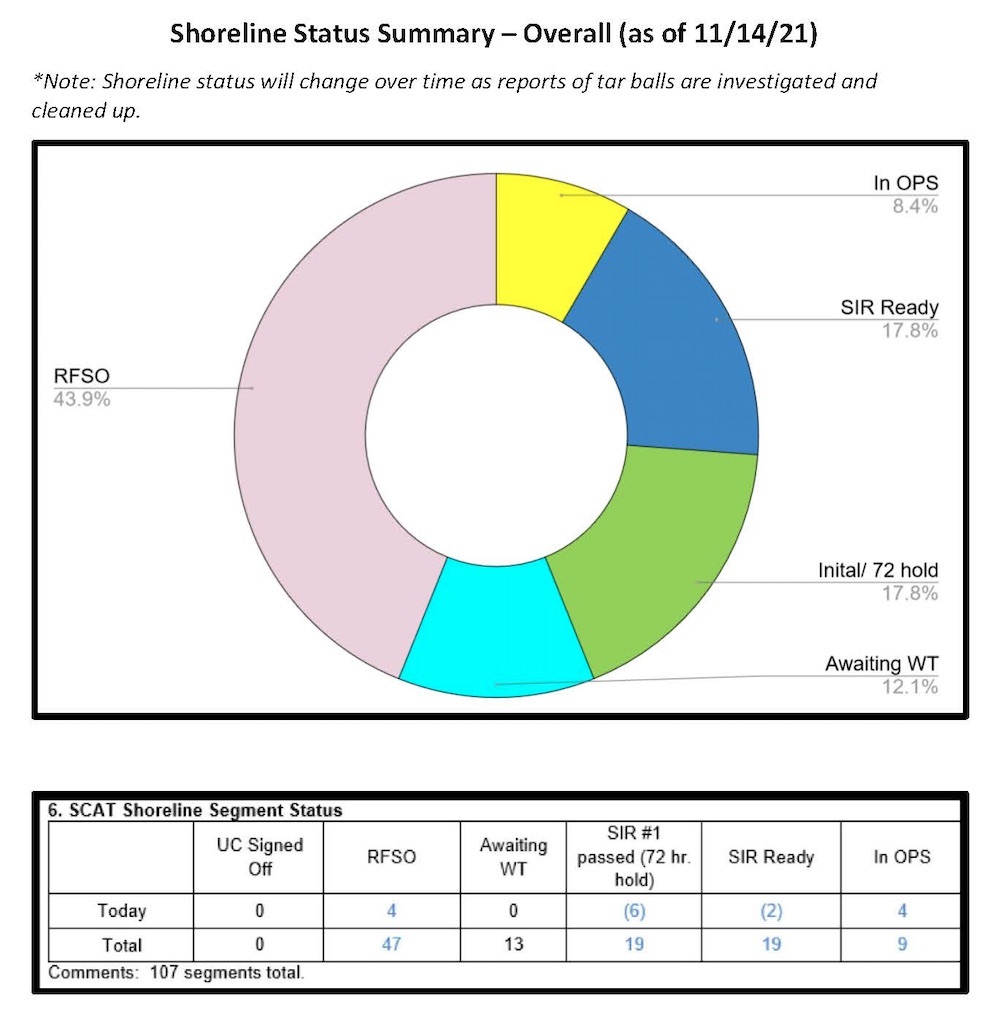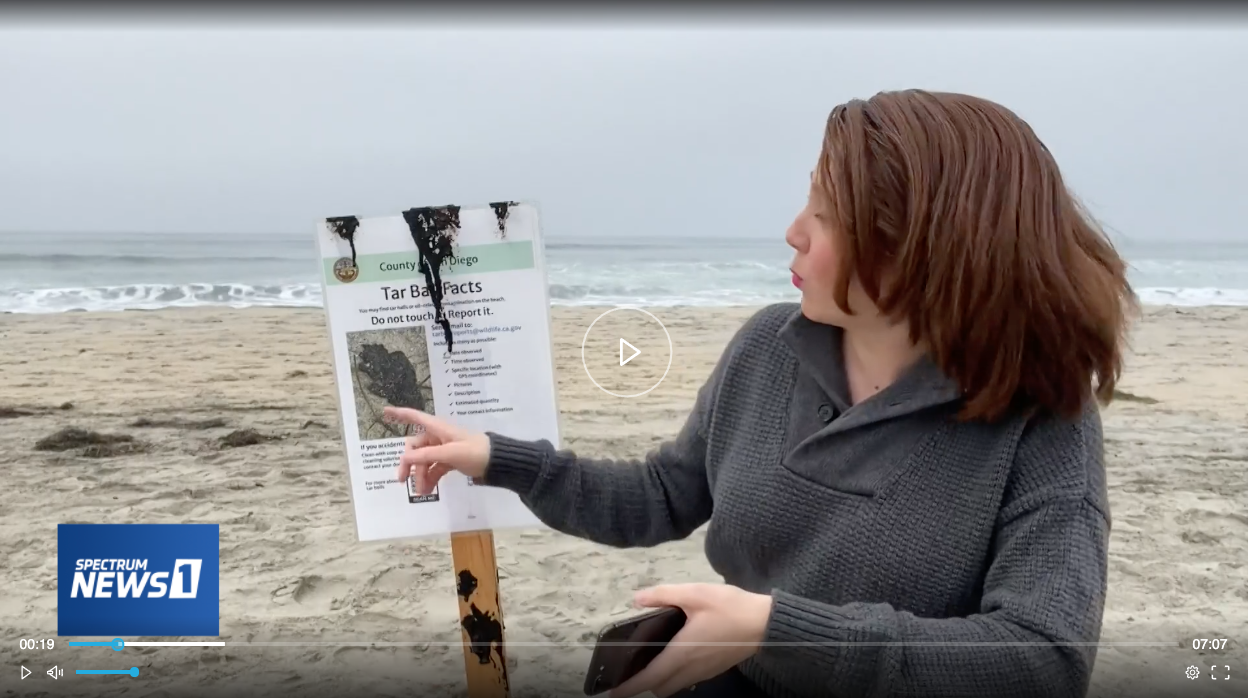
The Oil Clean Up Process
As we approach two months post spill, we wanted to share an update on the cleanup and the status of our coastlines. To date, 547,926 lbs of tar have been removed from Southern California beaches following the spill. Until recently, crews were still collecting 3,000-5,000lbs of tar a day on San Diego beaches. We know that at least 24,696 gallons spewed from the pipeline that connects platform Elly to the coast, but that number may be increased as the investigation and data collection continues.
Just last Saturday, another 30' x 70' oil slick was reported near the same pipeline that previously ruptured. Authorities have been investigating, but fortunately have not found evidence of a major breach. Crews have reinforced the pipeline with new wrap and there has not been additional oil sheen observed since the weekend. The pipeline has remained shut down since the initial incident .
After the oil spill was confirmed on October 2nd, the Unified Command, led by the U.S. Coast Guard, the California Department of Fish and Wildlife, and Orange and San Diego Counties, initiated its Response Phase. This includes the active assessment, monitoring and cleanup of the shoreline, with crews working in different coastal segments to remove oil or tarballs. These crews implement shoreline treatment recommendations by habitat type. More information can be found here and here.
Recently 11 of 107 segments of coastline in Orange County and San Diego have met clean up endpoints and are being “signed off”. The sign off process involves two inspections once end points have been reached, with a 72-hour waiting period between those inspections.


To support the cleanup effort, Surfrider launched a smartphone app to allow the public to easily report oil on beaches. The crowd source map generated includes more than 1,100 reports of tarballs on beaches. This data is sent to the Department of Fish and Wildlife every 24 hours to inform clean up efforts. This is volunteer science in action, and we need your eyes on the beach to ensure a full and comprehensive cleanup. For more info on the project and to see a map of data collected: http://go.surfrider.org/oilreport

To view the news segment above click here
Meanwhile, the fishery closure of 645 square miles is still in effect, and will be until at least late November. All live animals in care have been released so the wildlife operations have demobilized. More information on the impacted wildlife can be found here.
For an excellent update and summary of all that has transpired, watch the CA State Assembly, Joint Hearing Orange County Oil Spill Select Committee and Budget Subcommittee on Climate Crisis, Resources, Energy & Transportation and Natural Resources Committee, Nov 15, 2021.
Below is a summary of Surfrider’s priorities for oil spill response:
Supporting a Full and Comprehensive Cleanup
Surfrider was appointed as the NGO Liaison to the Unified Command and is working directly with the U.S. Coast Guard, California Department of Fish and Wildlife (CDFW) and local government to support the cleanup process. Our goal is to ensure a full and comprehensive cleanup of the oil.
Environmental Restoration/ Polluter Accountability
Surfrider is working to ensure that Amplify Energy is held fully accountable for the spill through the Natural Resources Damage Assessment (NRDA) process. Surfrider's priority is to ensure a full accounting of damages to the public, and that environmental restoration opportunities are maximized.
Ending Offshore Drilling in California
Surfrider joined the Center for Biological Diversity in submitting a formal request to the Department of Interior to cancel existing oil and gas leases off California. Surfrider will also be working to pass legislation in the 2022 California Legislative session to achieve this goal.
Banning New Offshore Drilling
Surfrider is uniting our national network to urge Congress to permanently ban new offshore drilling in U.S. waters. Our current focus is urging the House of Representatives to pass the Build Back Better Act which would prohibit new oil and gas drilling in the Pacific, Atlantic, and Eastern Gulf of Mexico. Take Action.